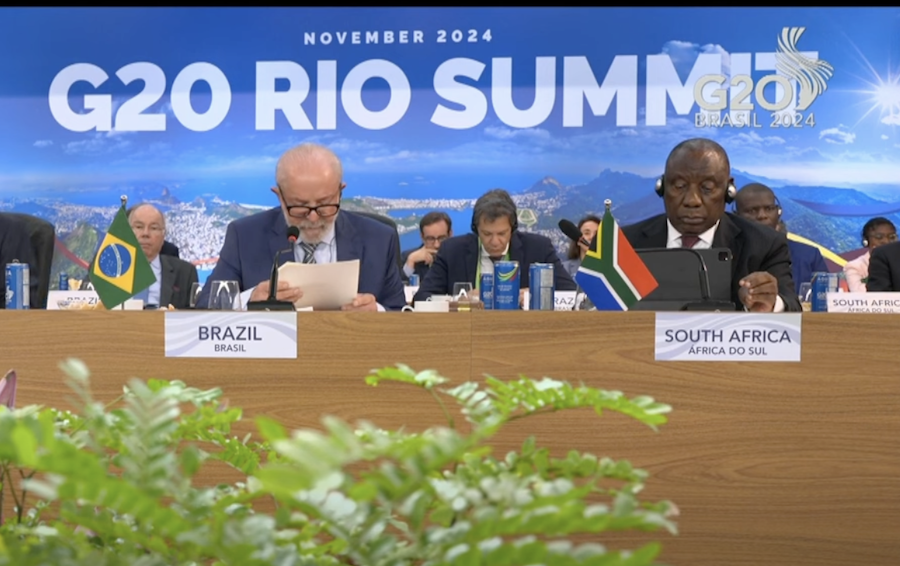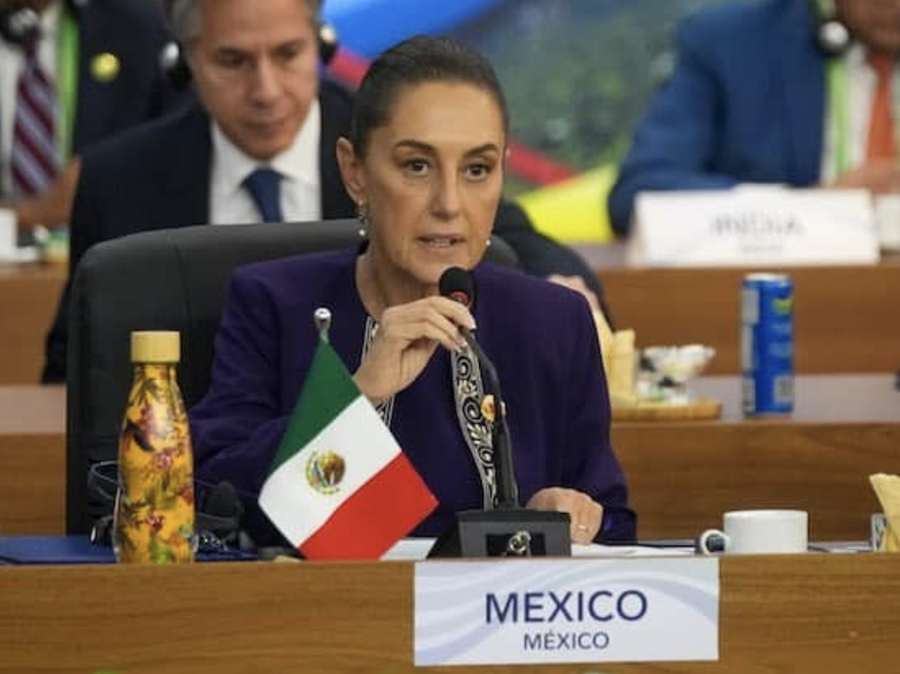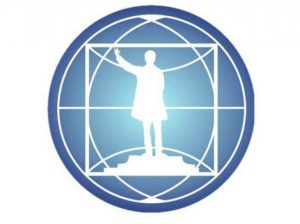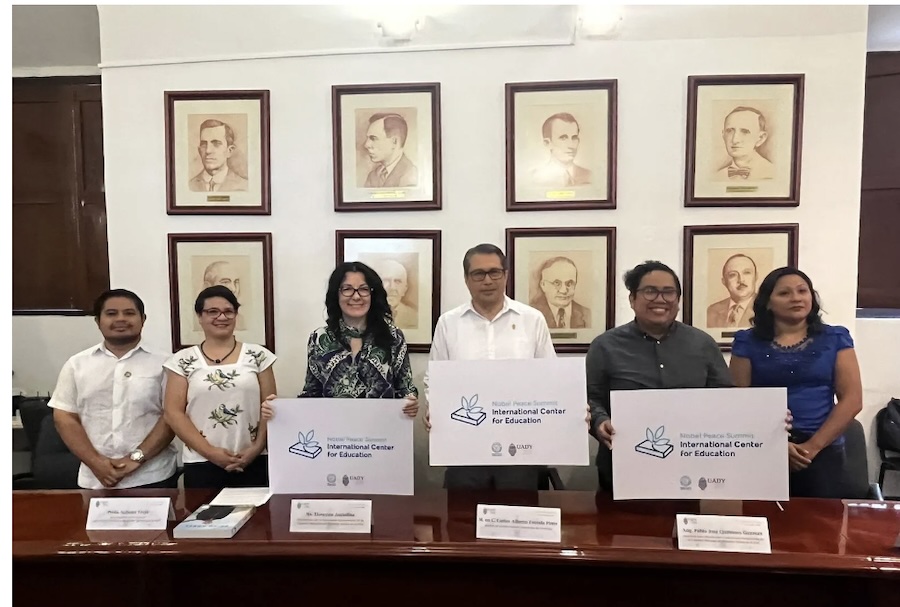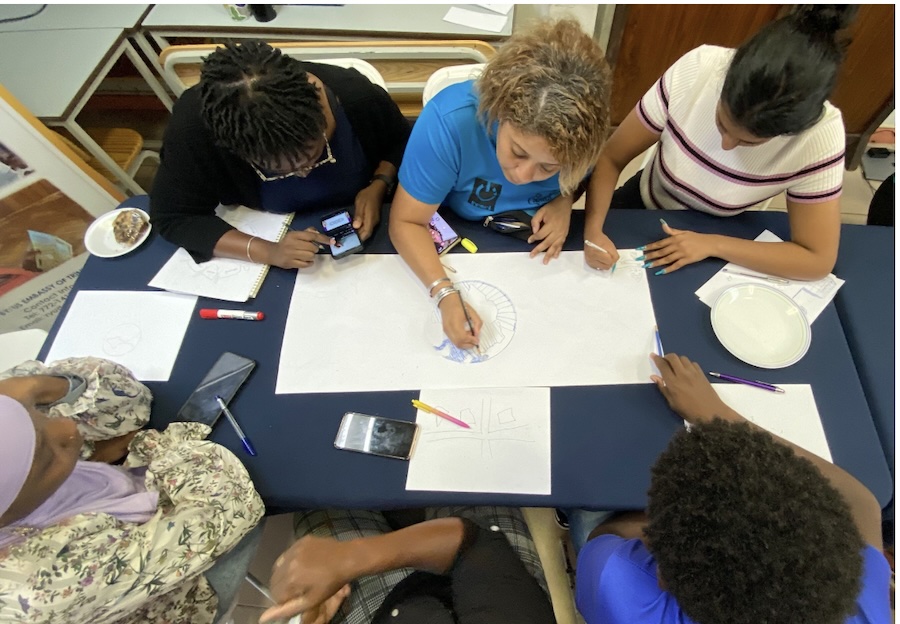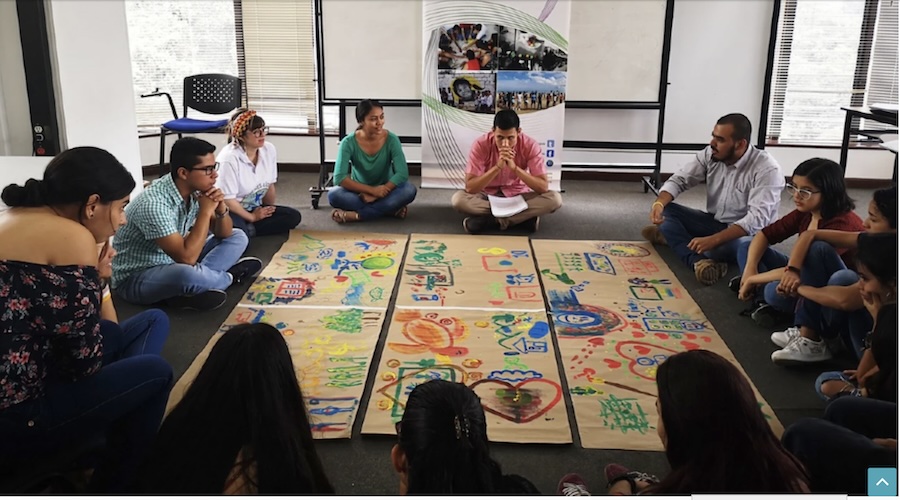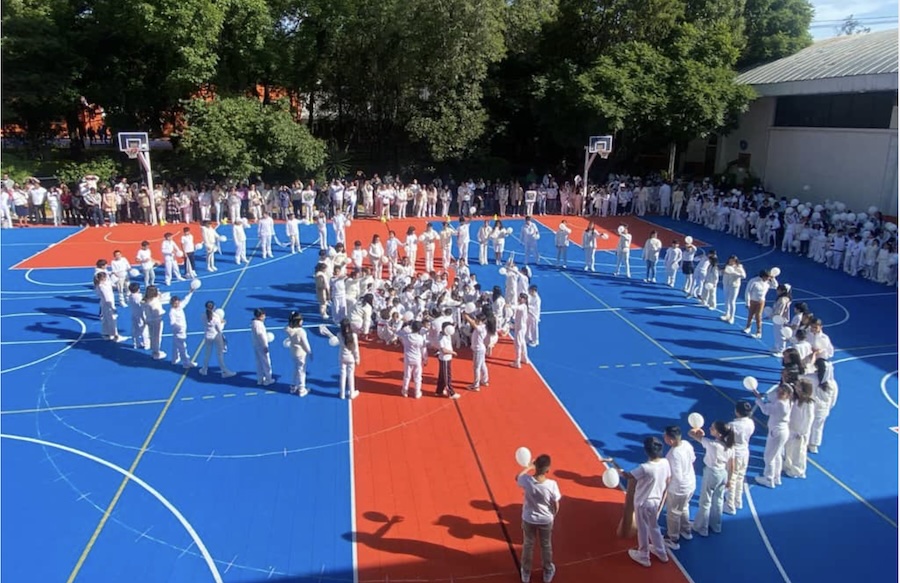FREE FLOW OF INFORMATION .
Transcription from the Video of his speech (transcription by Vizard and translation by CPNN)
Thank you to President Lula and to Brazil for inviting me to this forum.
It is the second time that a Colombian president has been invited, President Santos first and now me.
I want to speak on behalf of a part of Colombian society that I hope will be the majority.
Hunger. If there is no hunger in the south, there is no migration from the south to the north.
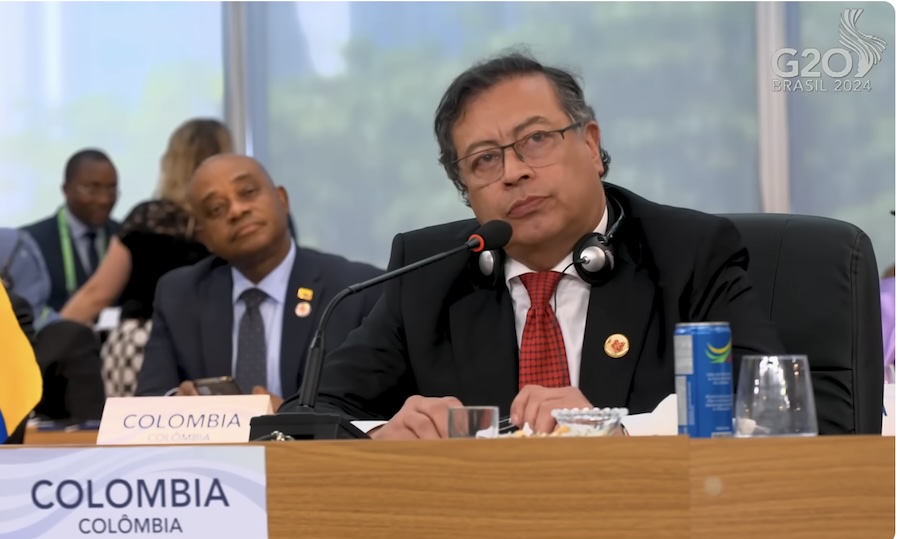
Frame from video of speech
Any policy that seeks to put migrants in concentration camps, any programs that seek and hunt migrants to return them to their countries of origin, will fail.
It will fail, it has failed.
The only effective policy to stop the exodus of people from the south to the north is for the south to be more prosperous, to not be hungry. That is the effective policy. And I invite the members of the G20 to practice it with reason and truth, not with hypocrisy.
Every blow to a migrant abroad is simply the recognition of the inability of the rich North to end hunger in humanity.
Ending hunger in humanity requires, in my opinion, three approaches that I want to leave with you.
First is the reject the concept of food security based on countries that export food to the rest of the world based on an intensive use of oil and coal. This has not ended hunger in the world.
Second, I propose to build, instead of the concept of a free world market for food security, the concept of food sovereignty, which consists of being able to produce enough food in countries where there is hunger. That requires a carbon-free agriculture based on the peasantry and the small farmer, not on the large agrarian multinational.
It is the peasantry and the small farmer of each country who should till the land and fulfill its social function as the primary means to feed their own people and the world.
We call this agrarian reform: that the peasantry of the world and the small farmers should have greater power as citizens, with full political and economic rights, as a basic guarantee for a decarbonized agriculture that feeds all citizens, all people in humanity.
Third, I would like to see this meeting go deeper into the topic of artificial intelligence. If artificial intelligence, which is going to expand exponentially, is fed by fossil fuels, oil and coal, it will interact with the climate crisis, deepening it. The climate crisis and artificial intelligence both have enormous potential to increase hunger in the world. Artificial intelligence can put hundreds of millions of workers out of work, and they will go hungry. Hunger in the world will increase if we are not able to at least set two objectives.
The first objective, contrary to someone who spoke here from Latin America, is to create a global public policy regulation of artificial intelligence. Artificial intelligence is the accumulated intellect of humanity in the digital cloud. Its privatisation can substantially increase hunger and, as Hawking has said, both with the climate crisis and with artificial intelligence, we have come to the edge of human extinction.
(Article continued in the column on the right)
Where in the world can we find good leadership today?
(Article continued from the column on the left)
Only global political regulation, true multilateralism, can overcome the immense danger it represents and put artificial intelligence at the service of human beings and not the other way around.
And a second objective to avoid throwing hundreds of millions of workers into the streets, increasing the exodus and increasing hunger, is a concept conceived in Brazil by sociologists who are now called dishonest, but who are profound thinkers on human problems. The concept is a universal citizen income.
Universal citizen income provides the possibility of ending hunger in the world. It demands that the millions of unemployed workers have something to eat. It leads us to demand a restructuring of international finances that is absolutely essential to overcome the climate crisis being discussed in Azerbaijan today, and to overcome hunger in the world.
I will end with some statements that I want to leave on behalf of a part of Colombian society.
First, the G20 must oppose the genocide in Gaza and call it what it is, without hypocrisy, genocide. If the G20, the powerful of the world, do not oppose genocide, humanity has no future.
Two, all kinds of economic blockades against any people in the world must cease, no matter the regime, because the blockade is a comprehensive and systematic violation of human rights, not of governments, but of human beings.
Three, regarding the war between Ukraine and Russia, I oppose the decision to permit the launch of missiles at Russia. There is no other solution than direct dialogue between Russia and Ukraine. Any peace talks that exclude one of the two peoples are only a war conference, not a peace conference. It is the Slavic peoples who must solve their problems and therefore the Russia-Ukraine dialogue must begin in order to achieve peace. Hopefully, it will take place on the basis of the precepts of the Munich agreement that Europe has forgotten.
Finally, I agree with the approach of the Republic of China on building a dialogue between civilizations. The new multilateral dialogue is not an imposition of some over others, but rather a global planetary democracy, and that implies, given human diversity, the recognition of this diversity and the construction of a dialogue between civilizations and not a confrontation, as Huntington said in the United States. I do not believe, and I have to say it here publicly, in something in that regard that was expressed at this conference.
I am a progressive, a radical democrat and a socialist. And I believe and am proud of it.
It is common struggle and human solidarity that has kept us alive on this planet since day one when we got together to hunt animals to eat, when we got together to make a bonfire to warm ourselves on cold nights.
We are not a society of individual atoms competing with each other. That is not the case even for the least intelligent animals.
We can only survive on this planet, overcome hunger, disease, inequality, overcome war, overcome the climate crisis, which is the main problem we face today, and put artificial intelligence to our service, if we help each other, if we are supportive, if we are a community, if we have common objectives, if we have common purposes and if we help each other.
Competition between human beings and nations has only brought us to the brink of
extinction.
The possibility of building a diverse civilization of humanity, even beyond this planet, taking care of this planet, depends on us helping each other, on us being supportive, and on us embracing the fact that the human species is a community.
Thank you, again, President Lula, for your very kind invitation.
– – – – – –
If you wish to make a comment on this article, you may write to coordinator@cpnn-world.org with the title “Comment on (name of article)” and we will put your comment on line. Because of the flood of spam, we have discontinued the direct application of comments.
